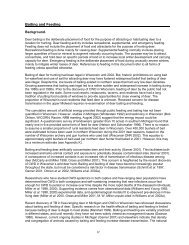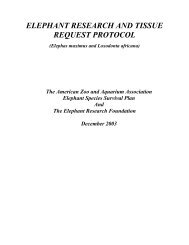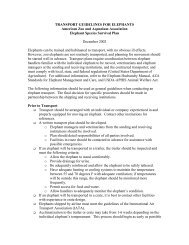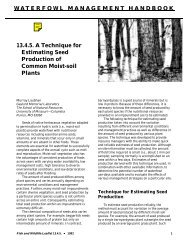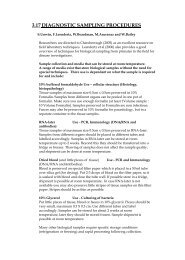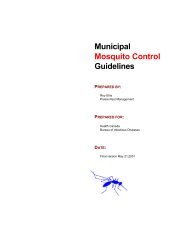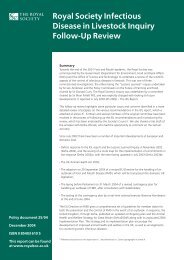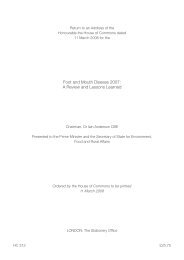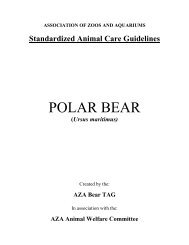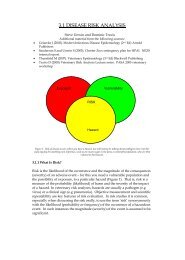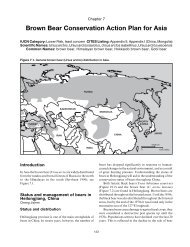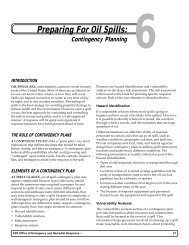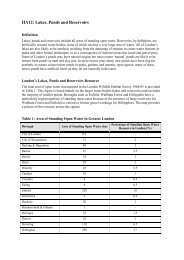Elephants Elephants - Wildpro - Twycross Zoo
Elephants Elephants - Wildpro - Twycross Zoo
Elephants Elephants - Wildpro - Twycross Zoo
You also want an ePaper? Increase the reach of your titles
YUMPU automatically turns print PDFs into web optimized ePapers that Google loves.
116<br />
• Loss of weight/reduction in weight gain or growth rate.<br />
• Changes in respiratory depth & pattern.<br />
• Respiratory discharges – from trunk.<br />
• Temperature of 38oC or more.<br />
• Hyperaemia of mucous membranes (eye, mouth, vulva).<br />
• Signs of pain - including groaning, biting tip of trunk, abnormal<br />
postures.<br />
• Non-specific colic signs – as for a horse.<br />
• Dependant oedema.<br />
• Neurological signs such as shaking, loss of balance etc.<br />
• Localised trauma – especially tusks.<br />
• Epiphora – excessive lacrimation of the eye. Caused by pain and could<br />
be related to infections and/or a foreign body.<br />
• Blepharospasm – spasm of the eyelids resulting in the eyes being<br />
closed. Caused by pain and could be related to infections and/or a<br />
foreign body.<br />
When making a clinical examination of an elephant it is important to realise<br />
the importance of blood sampling. For example, as skin turgor is not easy to<br />
assess, hydration is generally measured by reference to the PCV.<br />
Consequently, it is of enormous value that elephants are trained to accept<br />
sampling (and examination) without sedation, whatever the handling system.<br />
It is also crucial that elephant keepers keep accurate records; it is not easy for a<br />
veterinarian to assess changes in appetite, water-intake etc. when normal<br />
yardsticks are not available.<br />
Staff Health<br />
It is strongly suggested that elephant keeping staff keep up to date with<br />
tetanus vaccination and that they undergo an annual test for tuberculosis. It<br />
goes without saying that all animal keeping staff should adopt the highest<br />
standards of personal hygiene for their own protection and that of their<br />
charges.<br />
Surgery<br />
The scope of routine surgical procedures for the elephant is very limited. It is<br />
difficult to keep surgical incisions clean and wound healing is generally poor<br />
with considerable post-operative swelling and oedema. Superficial surgery<br />
often heals by granulation. For a review of surgical procedures in elephants,<br />
see (Mikota et al 1994Chapter 11).<br />
Vaccination<br />
<strong>Elephants</strong> should be vaccinated against tetanus annually. Vaccines against<br />
other diseases should be given as local conditions dictate. Little scientifically<br />
based information is available as to vaccine dose and frequency necessary to<br />
provide adequate protection in the elephant, but in general terms vaccines<br />
should be given at 2-3 times the recommended dose for adult cattle and horses<br />
(Schmidt, 1986). Anaphylaxis following vaccine administration is possible, so



